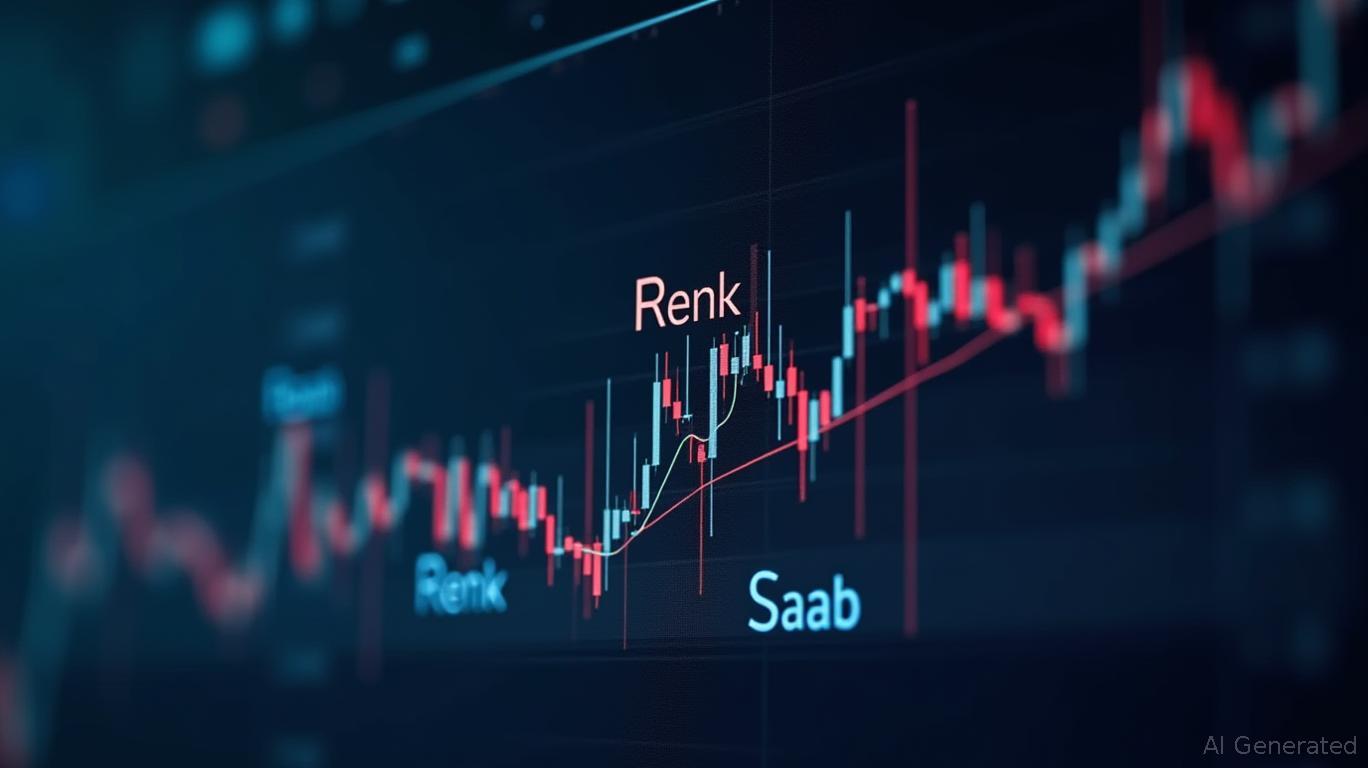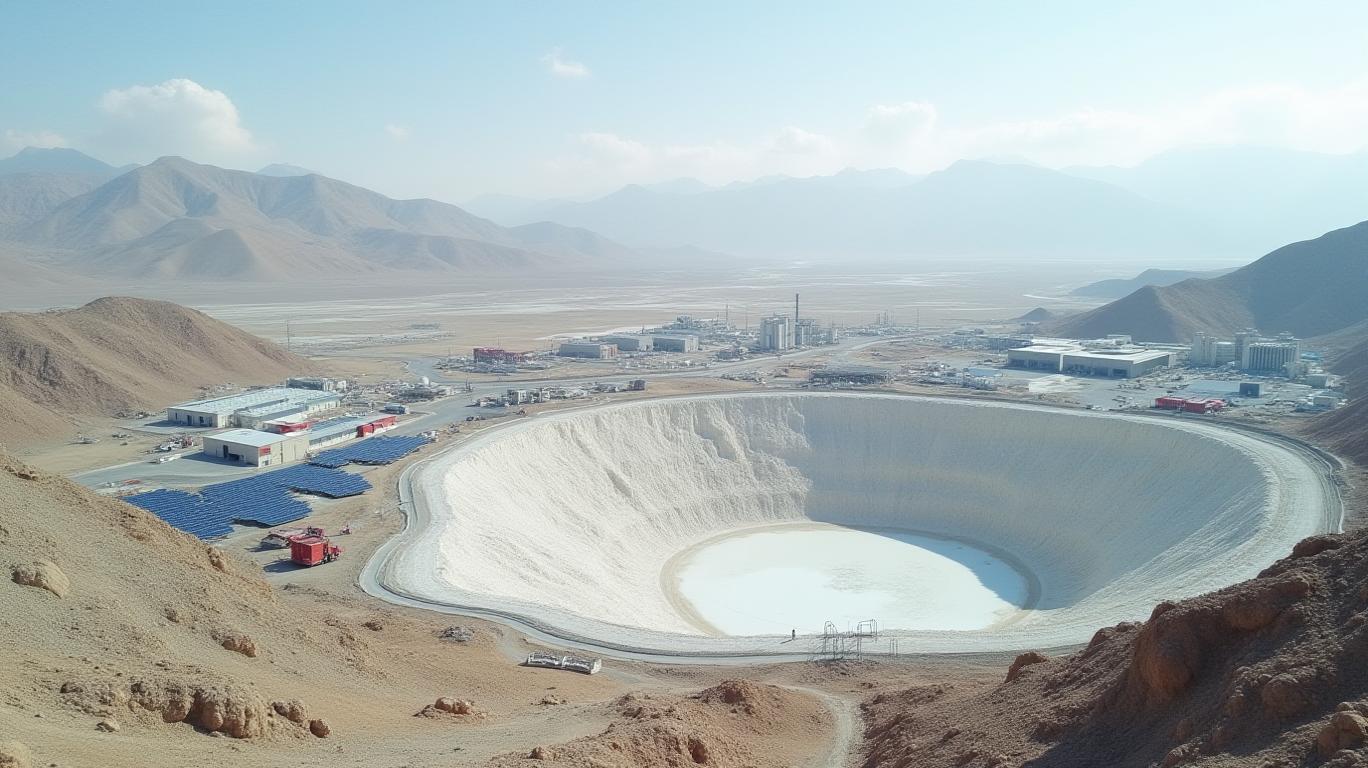Edison Lithium's Warrant Extension: Strategic Move or Risky Gamble?
Edison Lithium Corp. (TSE: EDDY) has extended the expiry date of 4 million common share purchase warrants from October 26, 2025, to October 26, 2027, marking a critical strategic shift for the junior mining firm. The move aims to provide investors with additional time to capitalize on potential upside in the lithium sector, but it also raises questions about the company’s financial resilience and execution risks. This analysis explores the implications of the extension, its alignment with market trends, and the challenges ahead.
Ask Aime: "Is Edison Lithium's delayed warrant expiry a strategic move?"

The Warrant Extension Details
The warrants, originally issued in October 2022, retain an exercise price of $0.20 per share, unchanged since issuance. Notably, 23% of the warrants (920,000) are held by insiders, a figure that underscores their confidence in the company’s long-term prospects. The extension was approved by the TSX Venture Exchange, requiring no adjustments to the warrants’ terms beyond the expiry date. This strategic maneuver delays potential dilution from warrant exercises while offering investors flexibility in a volatile lithium market.
Strategic Rationale and Risks
The extension reflects Edison Lithium’s ambition to capitalize on the surging demand for lithium, a critical component in electric vehicle (EV) batteries. By pushing the expiry date two years further, the company hopes to align warrant exercises with potential price increases tied to lithium’s role in the energy transition. However, the move also carries risks:
- Dilution Pressure: If exercised, the warrants could add 2 million new shares to the float (based on a 5:1 warrant-to-share ratio), potentially diluting existing shareholders.
- Financial Fragility: Edison remains revenue-free, with a market cap of just $1.51 million and a 5.71% year-to-date stock decline as of early 2025. Its cash reserves and ability to fund exploration projects are under scrutiny.
- Commodity Volatility: Lithium prices have fluctuated sharply in recent years, driven by oversupply concerns and geopolitical tensions. Edison’s success hinges on discovering economically viable deposits in its target regions, including lithium and cobalt projects in the DRC and Argentina.
Market Context and Industry Trends
The lithium sector is in a period of tumultuous growth and consolidation, with prices falling from $60,000/ton in 2022 to around $25,000/ton in early 2025 due to oversupply. Despite this, long-term demand projections remain robust:
- Global lithium demand is expected to grow at a 12% CAGR through 2030, driven by EV adoption and energy storage systems.
- Battery metals exploration spending hit a record $15 billion in 2023, signaling sustained investor interest in the sector.
Edison’s extension could be a calculated bet on lithium’s cyclical rebound, but its execution will depend on factors like:
- Progress in its Zambezi lithium project (DRC) and Dundee cobalt project (Argentina).
- Securing partnerships or financing to advance exploration.
- Navigating regulatory and geopolitical risks in mining jurisdictions like the DRC.
Insider Influence and Governance
The 23% insider stake in the warrants highlights the tight alignment between management and shareholders, but it also raises governance questions. Under Canadian securities regulations, such transactions are permissible provided they comply with Multilateral Instrument 61-101. Edison’s extension did not require minority shareholder approval, as the warrants’ value relative to its tiny market cap remains below regulatory thresholds. However, investors may question whether insiders’ stakes incentivize aggressive risk-taking over conservative financial management.
Conclusion: A High-Reward, High-Risk Gamble
Edison Lithium’s warrant extension is a strategic pivot aimed at extending its runway in a volatile lithium market. The move aligns with industry trends favoring long-term demand but carries significant risks given the company’s lack of revenue and modest financial resources. Key considerations for investors include:
- Technical Indicators: While Spark’s analysis rates the stock as “Underperform” due to weak fundamentals, technical signals suggest a potential rebound if lithium prices stabilize.
- Execution Potential: The company’s ability to advance its projects (e.g., Zambezi’s inferred resource of 30,000 tons of lithium carbonate equivalent) will determine whether the warrants’ extension translates into tangible value.
- Market Dynamics: A 12% CAGR for lithium demand by 2030 offers tailwinds, but Edison must compete with larger firms like Albemarle and SQM, which dominate supply chains.
For now, the extension is a double-edged sword: it buys time but demands execution. Investors may find opportunity in its low valuation and lithium’s long-term narrative, but patience—and a tolerance for risk—will be essential.
Ruth Simon is a pseudonym.



_23f7f7eb1749627884277.png)






